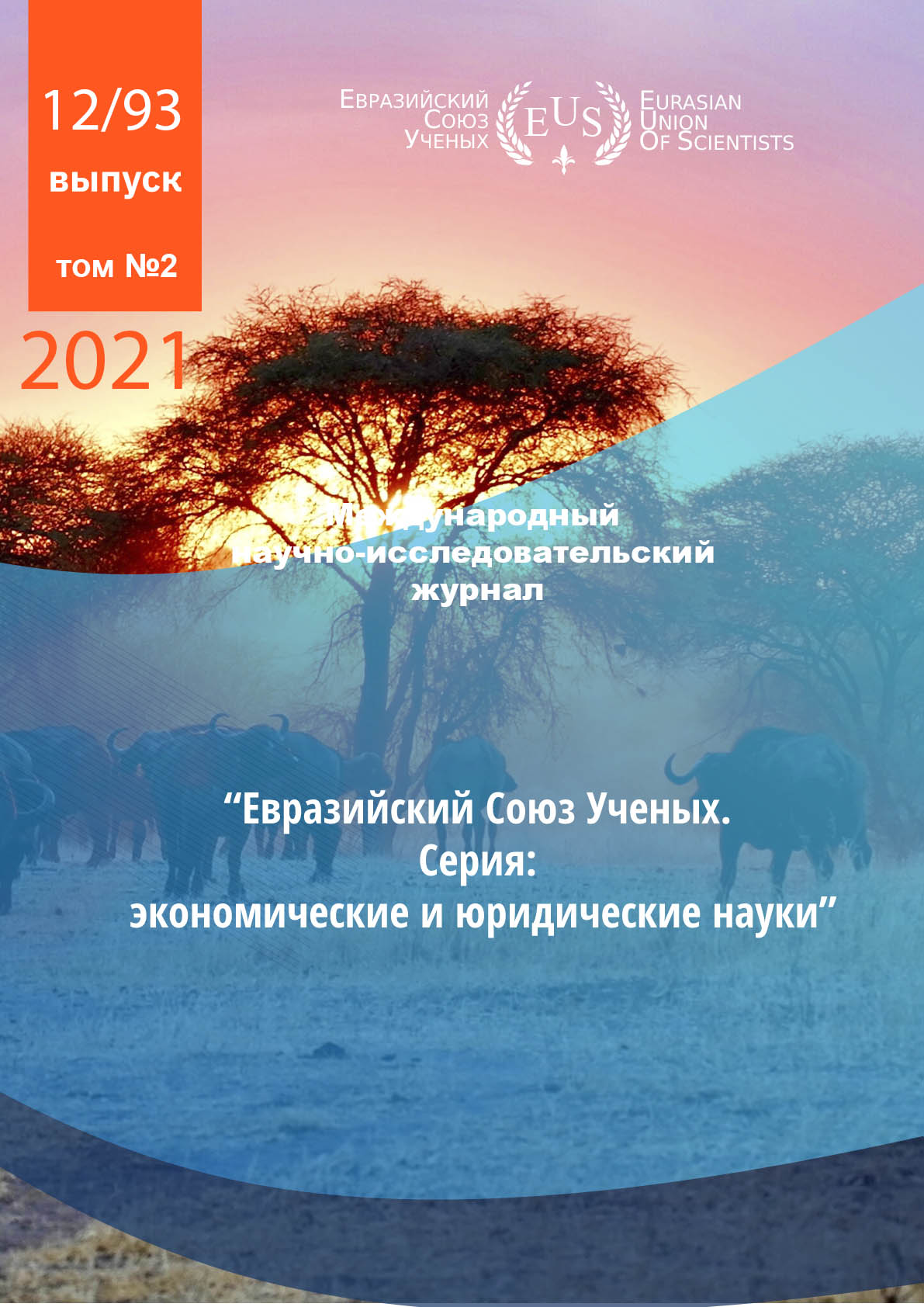DIGITAL TRANSACTIONS: MODERN LEGAL REGULATION AND LAW ENFORCEMENT
Abstract
This article is devoted to the issues of legal regulation and enforcement in the field of digital transactions and electronic commerce. Legislative acts at the international and national level are considered, the main ideas of the development of legislation and the field of legal regulation of electronic commerce, signs of a digital transaction, and problems of law enforcement are identified.
References
2. Federal Law No. 34 - FZ of 18.03.2019 «On Amendments to Parts One, Two and Article 1124 of Part Three of the Civil Code of the Russian Federation». [Electronic resource]. URL: http://www.consultant.ru/document/cons_doc_LAW_ 320398/ (accessed: 10/28/2021).
3. Resolution of the Government of the Russian Federation of 31.12.2020 N 2463 «On approval of the Rules for the Sale of goods under a retail sale agreement, a list of durable goods that are not subject to the consumer's requirement for the Provision of goods with the same Basic consumer properties free of charge for the period of repair or replacement of such goods, and a list of non-food products of good quality that are not subject to exchange, as well as amendments to some acts of the Government of the Russian Federation». [Electronic resource].URL: http://www.consultant.ru/document/cons_doc_LAW_ 373622 / (accessed: 10/30/2021).
4. Belov V.A. Electronic commerce: concept, legal regulation, judicial practice//Lawyer of the company. No. 5. 2021. [Electronic resource]. URL: https://www.law.ru/article/23109-elektronnayatorgovlya-ponyatie-pravovoe-regulirovaniesudebnaya-praktika (accessed: 10/28/2021).
5. Konovalova T.A. Transactions concluded using Internet technologies: civil law regulation, problems and prospects// Customs readings-2019. Science and education in the conditions of the formation of an innovative economy. Collection of materials of the International Scientific and Practical Conference. In 3 volumes. Under the general editorship of S.N. Gamidullaev. 2019. Publishing house: St. Petersburg named after V.B. Bobkov branch of the Russian Customs Academy (St. Petersburg). pp. 167-175.
6. Resolution of the Presidium of the Supreme Arbitration Court of the Russian Federation dated 12.11.2013 No. 18002/12 in case No. A47-7950/2011. [Electronic resource]. URL: http://www.arbitr.ru/bras.net/f.aspx?id_casedoc=1_1_ 50541280-07f7-48b2-b0c0-8d561b047348 (date of appeal: 29.20.2021).
7. Resolution of the Plenum of the Supreme Court of the Russian Federation No. 57 dated December 26, 2017 «On some issues of the application of legislation regulating the use of documents in electronic form in the activities of courts of general jurisdiction and arbitration courts».
8. Ruling of the First Cassation Court of General Jurisdiction No. 88-22889/2020 dated 30.10.2020. [Electronic resource]. URL:http://www.consultant.ru/cons/cgi/onli ne.cgi?req=doc&base=KSOJ001&n=29796#kpzNloSyKEMzrWfm (date of application: 30.10.2021).
9. Ruling of the Third Cassation Court of General Jurisdiction dated 29.10.2020 No. 88-17185/2020. [Electronic resource]. URL:
https://3kas.sudrf.ru/modules.php?name=press_dep&op=12&arc_list=2020 (date of application: 30.10.2021).
10. Definition (appeal) Sverdlovsk Regional Court dated 30.04.2019 in case No. 33-6947/2019. [Electronic resource].
URL:https://sudact.ru/regular/court/reshenyasverdlovskii-oblastnoi-sud-sverdlovskaia-oblast/?page=11 (accessed: 10/30/2021).
CC BY-ND
A work licensed in this way allows the following:
1. The freedom to use and perform the work: The licensee must be allowed to make any use, private or public, of the work.
2. The freedom to study the work and apply the information: The licensee must be allowed to examine the work and to use the knowledge gained from the work in any way. The license may not, for example, restrict "reverse engineering."
2. The freedom to redistribute copies: Copies may be sold, swapped or given away for free, in the same form as the original.







